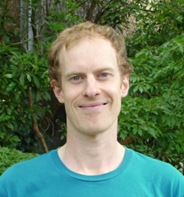Mema o Te Apārangi | Member profile: Sam McColl

In this month’s Member profile, we hear from Sam McColl, President of the Geoscience Society of New Zealand (GSNZ), one of the Society’s Constituent Organisations.
Tell us about your role at GSNZ.
I have volunteered on the National Committee of the Geoscience Society of New Zealand (GSNZ) since 2017 and have served as President since November. The GSNZ connects and supports approximately 700 members who research, teach, learn about, advocate for, and apply themselves to various geoscience topics and issues. Geoscientists try to understand the natural history of Aotearoa and the planet, identify and solve environmental issues and innovate in resource and energy sectors. They also help to enhance the country's resilience to natural hazards and disasters and comprehend climate changes and their impacts. The diversity of these topics is what makes being part of the Society so exciting, it is rewarding to contribute to such a tight-knit and active community.
What has been your involvement with Royal Society Te Apārangi?
The GSNZ is a Constituent Organisation of the Royal Society Te Apārangi and my personal involvement has really been since becoming President. I have enjoyed and benefited from the events I have attended so far, meeting people from other Constituent Organisations and learning more about Royal Society Te Apārangi and the staff. It’s been good to get collective views on the current science crises and come together to identify ways to help fight it.
What has been a defining highlight of your career?
I could say the present is the highlight—being President of GSNZ, a team leader, and a senior scientist surpasses what I thought I’d achieve. However, it's the accumulation of highlights along the way that I truly cherish: fieldwork in stunning locations, seeing my students thrive, being part of great research and teaching teams and having an atypical job that never gets boring. It's a great privilege. I hope such career pathways will continue to be available in the future. However, it is deeply concerning to witness the extensive cuts to the geoscience and broader science sectors over recent months and years.
What were the contributing factors for choosing to work in the science field?
Well, initially I wanted to be a builder. But my parents, particularly my father who was also a scientist, encouraged academic pursuits. After some trial and error at university, I found that the natural sciences were what engaged me, particularly geoscience and biology. A love of the outdoors, practical hands-on experiments and field trips, the use of technology and the clear environmental contributions of these fields were major drawcards. Perhaps a good career advisor could have steered me in this direction earlier, but I probably would have just told them I wanted to be a builder.
When not working, I enjoy...
Perhaps not surprisingly, in my spare time I enjoy woodworking and building things around the house. I'm also a keen gardener and tramper and I have a dive ticket, though I don't get to indulge in these activities as often as I'd like. My more active hobbies, which coincidentally all begin with the letter ‘s’, include squash, salsa dancing and Spanish lessons.
